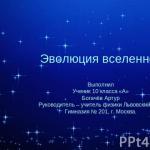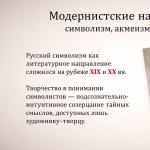Books enlighten the soul, elevate and strengthen a person, awaken in him the best aspirations, sharpen his mind and soften his heart.
William Thackeray, English satirist
A book is a huge force.
Vladimir Ilyich Lenin, Soviet revolutionary
Without books, we can now neither live, nor fight, nor suffer, nor rejoice and win, nor confidently move towards that reasonable and beautiful future in which we unshakably believe.
Many thousands of years ago, the book, in the hands of the best representatives of humanity, became one of the main weapons in their struggle for truth and justice, and it was this weapon that gave these people terrible strength.
Nikolai Rubakin, Russian bibliologist, bibliographer.
A book is a working tool. But not only. It introduces people to the lives and struggles of other people, makes it possible to understand their experiences, their thoughts, their aspirations; it makes it possible to compare, understand the environment and transform it.
Stanislav Strumilin, academician of the USSR Academy of Sciences
There is no better way to refresh the mind than to read the ancient classics; As soon as you take one of them in your hands, even for half an hour, you immediately feel refreshed, lightened and cleansed, lifted and strengthened, as if you had refreshed yourself by bathing in a clean spring.
Arthur Schopenhauer, German philosopher
Anyone who was not familiar with the creations of the ancients lived without knowing beauty.
Georg Hegel, German philosopher
No failures of history and blind spaces of time are able to destroy human thought, enshrined in hundreds, thousands and millions of manuscripts and books.
Konstantin Paustovsky, Russian Soviet writer
The book is a magician. The book transformed the world. It contains the memory of the human race, it is the mouthpiece of human thought. A world without a book is a world of savages.
Nikolai Morozov, creator of modern scientific chronology
Books are a spiritual testament from one generation to another, advice from a dying old man to a young man beginning to live, an order passed on to a sentry going on vacation to a sentry taking his place.
Empty without books human life. The book is not only our friend, but also our constant, eternal companion.
Demyan Bedny, Russian Soviet writer, poet, publicist
A book is a powerful tool of communication, labor, and struggle. It equips a person with the experience of life and struggle of humanity, expands his horizon, gives him knowledge with the help of which he can force the forces of nature to serve him.
Nadezhda Krupskaya, Russian revolutionary, Soviet party, public and cultural figure.
Reading good books is a conversation with the most the best people past times, and, moreover, such a conversation when they tell us only their best thoughts.
René Descartes, French philosopher, mathematician, physicist and physiologist
Reading is one of the sources of thinking and mental development.
Vasily Sukhomlinsky, an outstanding Soviet teacher-innovator.
Reading is for the mind what physical exercise is for the body.
Joseph Addison, English poet and satirist
Good book- exactly a conversation with smart person. The reader receives from her knowledge and a generalization of reality, the ability to understand life.
Alexei Tolstoy, Russian Soviet writer and public figure
Do not forget that the most colossal weapon of multifaceted education is reading.
Alexander Herzen, Russian publicist, writer, philosopher
Without reading there is no real education, there is no and there can be no taste, no words, no multifaceted breadth of understanding; Goethe and Shakespeare are equal to a whole university. By reading a person survives centuries.
Alexander Herzen, Russian publicist, writer, philosopher
Here you will find audiobooks by Russian, Soviet, Russian and foreign writers various topics! We have collected for you masterpieces of literature from and. Also on the site are audiobooks with poems and poets; lovers of detective stories, action films, and audiobooks will find interesting audiobooks. We can offer women, and for women, we will periodically offer fairy tales and audiobooks from school curriculum. Children will also be interested in audiobooks about. We also have something to offer to fans: audiobooks from the “Stalker” series, “Metro 2033”..., and much more from . Who wants to tickle their nerves: go to the section
Name: History of the decline and destruction of the Great Roman Empire
Author: Edward Gibbon
Date of issue: 2009
Performers Stars: Natalia Litvinova, Ivan Litvinov, Mikhail Pozdnyakov
Duration: 175 hours 05 minutes
Language: Russian
Format: MP3
Bitrate: 32 kbps
Quality: good
Size: 308.41 MB + 294.92 MB + 345.23 MB + 342.22 MB + 358.98 MB + 380.97 MB + 347.39 MB
Covering the period from the 2nd to the 16th centuries of the Western and Eastern Roman Empire, The History of the Decline and Fall of the Roman Empire is the most significant work ever written on Roman history and remains one of the most popular historical works today.
The text is reproduced in 7 volumes without abbreviations.
The first volume covers the period of Roman history from the Antonine Age (2nd century AD - the "golden age of Roman history") to the unification of the empire by Constantine the Great (324 AD)
The second volume describes the conditions in which historical Christianity took shape. Under Gibbon's pen, the figures of people whose actions to this day evoke very ambiguous assessments come to life: Constantine the Great and Julian, the restorer of Hellenism.
In the third volume, the author describes the era that precedes the fall of the once powerful Roman Empire, its prominent political, state and religious figures and covers the period from 362 AD. to 450 AD
In the fourth volume of the History, Gibbon examines the barbarian invasion of the Roman Empire and sets out his views on the reasons for the fall of the Empire.
In the fifth volume of the History, Gibbon examines the reign of Justinian and the formation of the code of Roman law, the development of Christian dogma and the fight against heresies, the emergence of Muhammad and the birth of Islam.
The material in this volume covers the era of greatest prosperity in the history of Europe and the Mediterranean basin in the VI-VIII centuries. (303 AD - 680 AD)
In the sixth volume of his History, Gibbon examines the events and historical trends that determined further development international relations and internal history European countries for the period 632 AD. - 1203 AD: Arab conquests, Crusades, Norman raids on Southern Europe.
Particular attention is paid to the history of the Slavs and Rus'.
The seventh volume of E. Gibbon's historical epic is dedicated to the final stage of history Byzantine Empire, which ended with the fall of Constantinople and the conquest of part of Europe by Turkish invaders. Understanding the history of Byzantium and Rome, the author paints a broad picture of the tragic events of this time - the end crusades, Tatar-Mongol invasion of the lands of Eastern Europe, the campaigns of the great Timur, civil strife in Italy - which marked the end of the existence of a once formidable and great state.
Edward Gibbon's audiobook The History of the Decline and Fall of the Great Roman Empire covers the period from the 2nd to the 16th centuries of the Western and Eastern Roman Empire. It is the most significant work ever written on Roman history, and remains one of the most popular historical works today.
Edward Gibbon (1737 - 1794), English historian, in whose works a brilliant literary style and fascinating storytelling were combined with high scientific level critical analysis of a wide range of sources.
The first volume covers the period of Roman history from the Antonine Age (2nd century AD - the "golden age of Roman history") to the unification of the empire by Constantine the Great (324 AD).
Playing time: 22 hours. 41 min.
The second volume describes the conditions in which historical Christianity took shape. Under Gibbon's pen, the figures of people whose actions to this day evoke very ambiguous assessments come to life: Constantine the Great and Julian, the restorer of Hellenism.
Playing time: 21 hours. 55 min.
In the third volume, the author describes the era that precedes the fall of the once powerful Roman Empire, its prominent political, state and religious figures and covers the period from 362 AD. to 450 AD
Playing time: 25 hours. 23 min.
In the fourth volume, Gibbon examines the barbarian invasion of the Roman Empire and sets out his views on the reasons for the fall of the Empire. The material in this volume covers the period of the emergence of European states and the rise of the Eastern Roman Empire (450 AD - 594 AD).
Playing time: 25 hours. 10 min.
In the fifth volume, Gibbon examines the reign of Justinian and the formation of the body of Roman law, the development of Christian dogma and the fight against heresies, the emergence of Muhammad and the birth of Islam.
The material in this volume covers the era of greatest prosperity in the history of Europe and the Mediterranean basin in the VI-VIII centuries. (303 AD - 680 AD)
Playing time: 26 hours. 28 min.
In the sixth volume, Gibbon examines the events and historical trends that determined the further development of international relations and the internal history of European states for the period 632 AD. - 1203 AD: Arab conquests, crusades, Norman raids on Southern Europe. Particular attention is paid to the history of the Slavs and Rus'.
Playing time: 28 hours. 05 min.
The seventh volume of E. Gibbon's historical epic is dedicated to the final stage of the history of the Byzantine Empire, which ended with the fall of Constantinople and the conquest of part of Europe by Turkish invaders. Understanding the history of Byzantium and Rome, the author paints a broad picture of the tragic events of this time - the end of the Crusades, the Tatar-Mongol invasion of the lands of Eastern Europe, the campaigns of the great Timur, civil strife in Italy - which marked the end of the existence of a once formidable and great state.
Playing time: 25 hours. 35 min.
Playing time: 175:05:05
Publisher: aKniga
Edward Gibbon's audiobook “The History of the Decline and Collapse of the Great Roman Empire” is performed by: Mikhail Pozdnyakov, Natalia Litvinova




